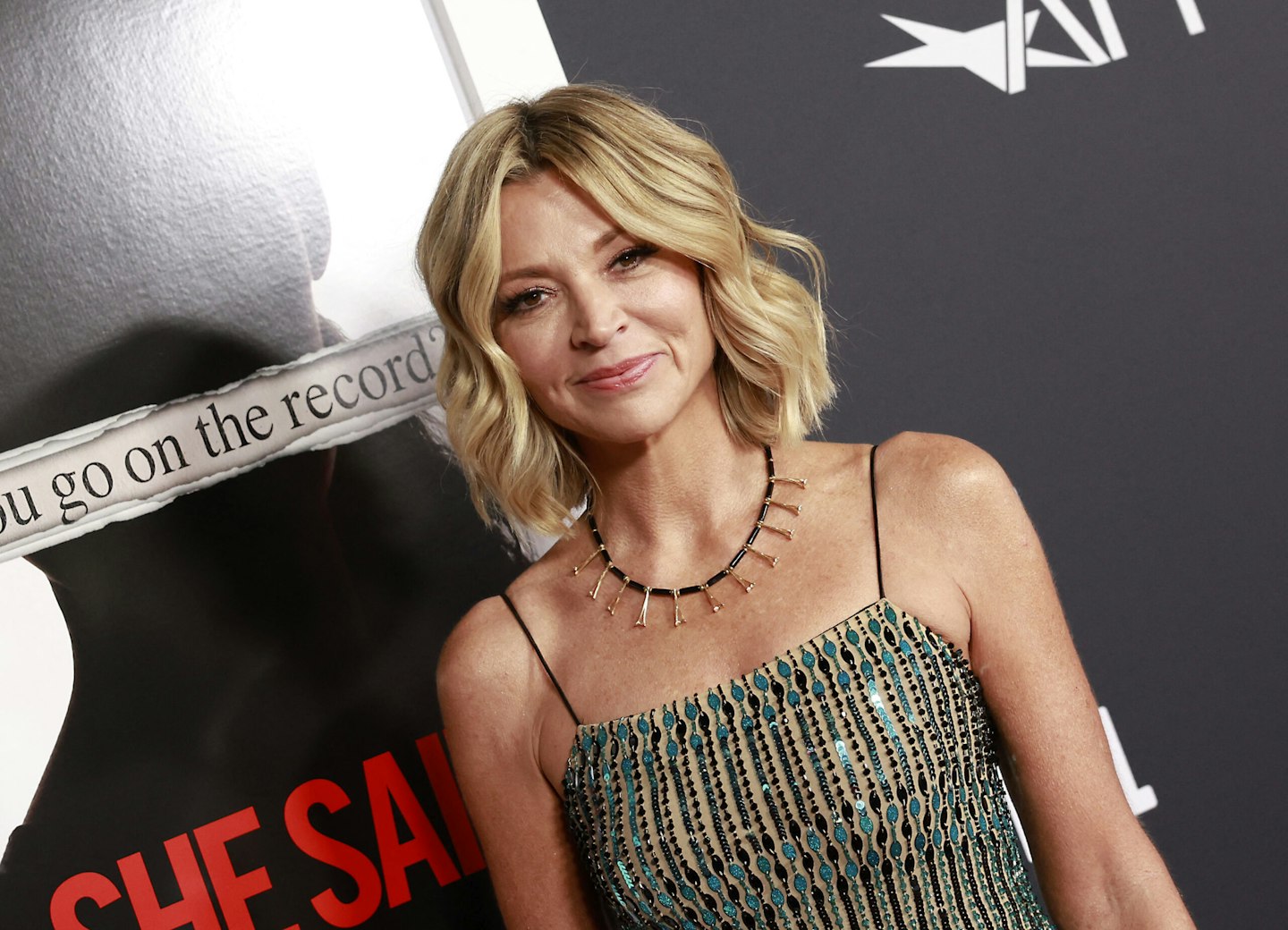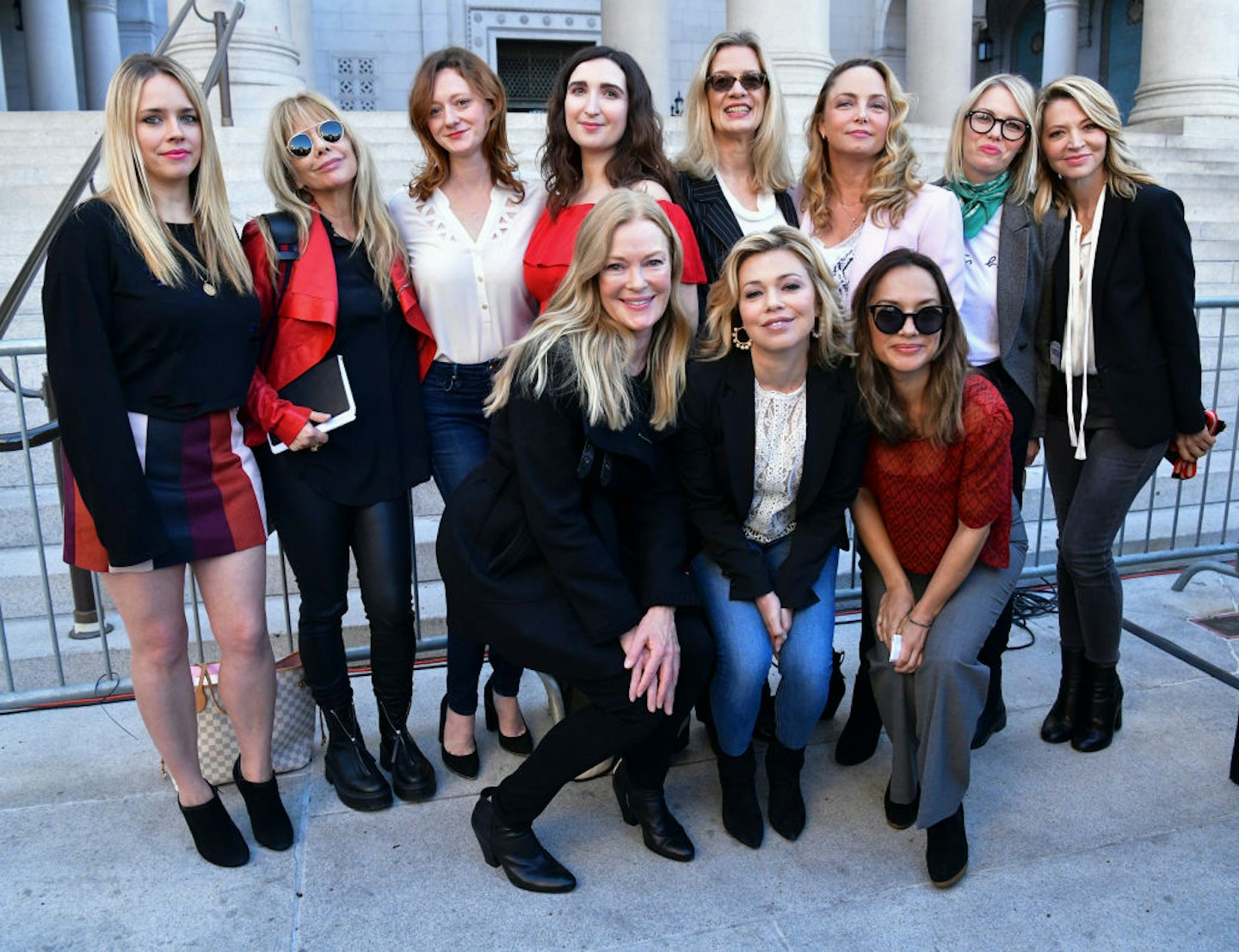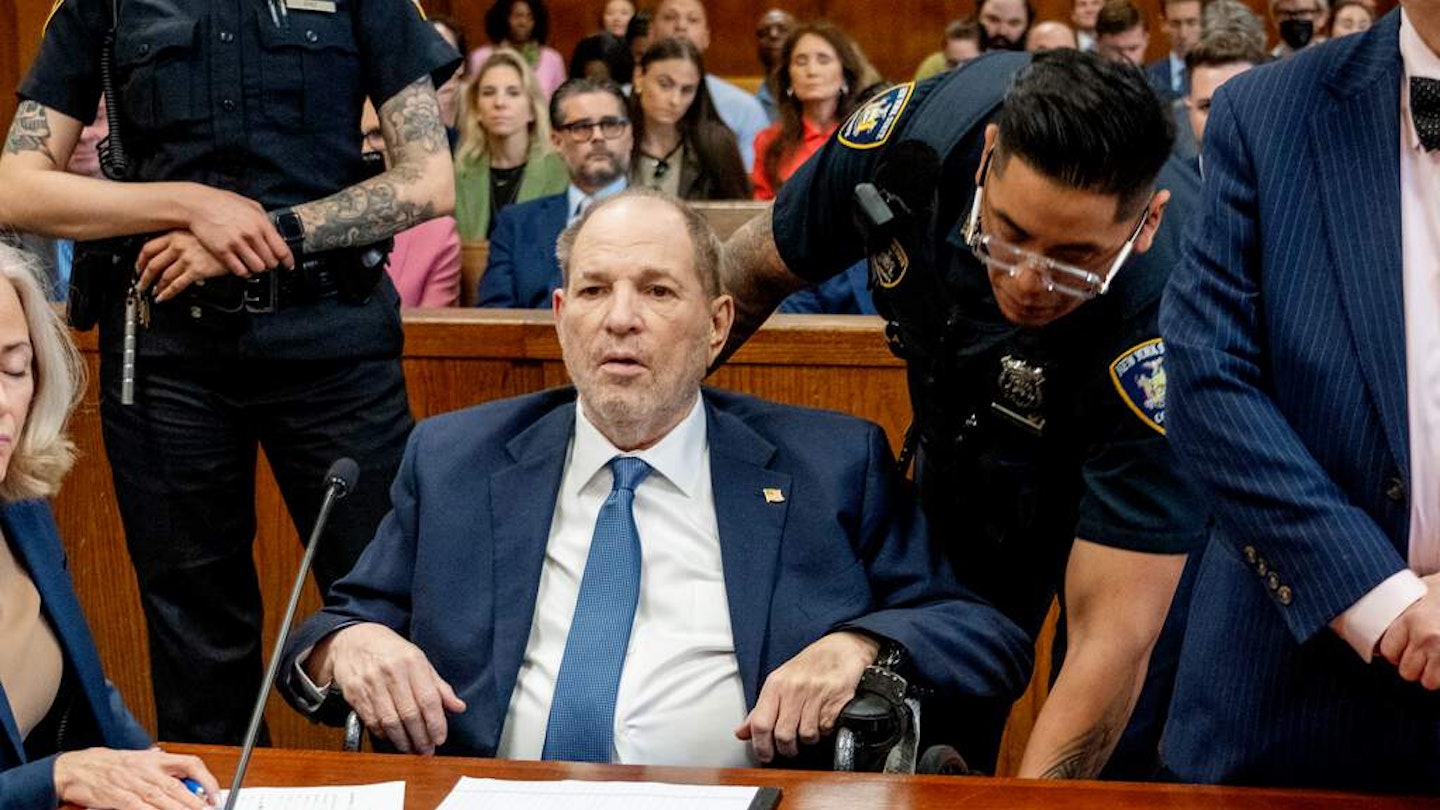They say that sexual trauma is a lifelong battle for survivors – never has that been more clearly exemplified than by Harvey Weinstein’s accusers. Seven years after the #MeToo movement saw him accused of sexual misconduct by more than 80 women, the disgraced media mogul has successfully appealedone of his rape convictions. He now faces a new trial in New York in September, although experts say it rests on his accusers being willing to testify again.
Weinstein was first convicted in New York in 2020, of rape and sexual assault, then again in a separate trial in LA in 2022, at which he was found guilty of rape and sexual misconduct and sentenced to 16 years in prison. He has also been formally charged by the Met Police in London with two counts of indecent assault against a woman in 1996. Weinstein has always denied having any non-consensual sexual encounters.
This new appeal relates solely to his conviction in New York and comes after the New York Court of Appeals ruled that the judge at his 2020 trial made ‘egregious errors’ by allowing testimony from women not named as complainants. Prosecutors were attempting to prove a pattern of predatory behaviour, but Judge Jenny Rivera has declared that they ‘served no material non-propensity purpose’.
For actor Katherine Kendall, 54, who says Weinstein sexually harassed her when she was 23, it came as a huge shock. ‘When I first heard, I was stunned,’ she tells Grazia. ‘I was terrified, horrified. Right when you have stopped thinking about it and feel safe to move on, you get hit with the whole thing all over again. It’s such a ride for your body and mind, your adrenaline starts going, your thoughts start racing, wondering, “How can this be?” Then you have to find a way to regulate yourself again.’

Kendall alleges that, in 1993, Weinstein invited her for a meeting about her career at the Miramax office in LA but, afterwards – in details hauntingly familiar to other women’s stories – he lured her to his apartment under false pretences, emerged undressed asking for a massage and asked her to expose herself to him, then blocked the exit when she tried to escape. She told just three people at the time (her mum and two friends), scared she wouldn’t be believed and that he would blacklist her in Hollywood. But in 2017, after seeing actors such as Ashley Judd, Rose McGowan and Salma Hayek courageously speak out about Weinstein’s behaviour, she did too.
Kendall went on to be part of the lawsuit that saw more than 30 women sue Weinstein, receiving a group settlement of $25m after two years of legal wrangling. That catch was, the deal would not require Weinstein to admit any wrongdoing, something Kendall didn’t feel was fair and says still really upsets the women involved to this day.

Now, many of Weinstein’s accusers have a WhatsApp group to support each other, and Kendall says the reaction there has been of similar shock. ‘People called me, like, “Oh my god, my hands are shaking, I feel sick,”’ she says. ‘Some are really upset and angry, because it’s such a fight for sexual assault survivors to get justice and you really need to prove a pattern, because otherwise it’s “He said, she said” so why wouldn’t every state allow for other witnesses or testimonies to be taken into consideration?’
The appeal has also sparked fear around what it means for Weinstein’s other convictions. Judd led a chorus of women condemning the appeal, saying it was a ‘hard day for survivors’. McGowan, who says Weinstein sexually assaulted her in 1997, also called the ruling ‘evil’. ‘No matter what they overturn, they cannot take away who we are, what we know, what we’ve gone through...’ she posted on Instagram.
Kendall agrees. ‘He’s in a prison of his own making, regardless of whether he’s in jail or not,’ she says. ‘His name is still synonymous with sexual assault and what kind of life is that?’
We can't let things reverse. We can't get soft.
Katherine Kendall
But now, many are questioning what this all says about the success of the #MeToo movement. While Kendall does believe it shifted our culture to spread awareness of sexual violence and create more safeguards for women, she says Weinstein’s conviction being overturned should serve as a wake-up call that there is still much to be done. ‘Once a movement starts, you have to make sure it stays moving,’ she says. ‘We can’t let things reverse. We can’t get soft.’
To support the MeToo movement, visit metoomvmt.org
